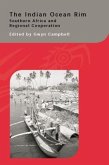Positioned at the crossroads of the maritime routes linking the Indian Ocean and the Mediterranean Sea, the Yemeni port of Aden grew to be one of the medieval world's greatest commercial hubs. Approaching Aden's history between the eleventh and thirteenth centuries through the prism of overseas trade and commercial culture, Roxani Eleni Margariti examines the ways in which physical space and urban institutions developed to serve and harness the commercial potential presented by the city's strategic location. Utilizing historical and archaeological methods, Margariti draws together a rich variety of sources far beyond the normative and relatively accessible legal rulings issued by Islamic courts of the time. She explores environmental, material, and textual data, including merchants' testimonies from the medieval documentary repository known as the Cairo Geniza. Her analysis brings the port city to life, detailing its fortifications, water supply, harbor, customs house, marketplaces, and ship-building facilities. She also provides a broader picture of the history of the city and the ways merchants and administrators regulated and fostered trade. Margariti ultimately demonstrates how port cities, as nodes of exchange, communication, and interconnectedness, are crucial in Indian Ocean and Middle Eastern history as well as Islamic and Jewish history.
Bitte wählen Sie Ihr Anliegen aus.
Rechnungen
Retourenschein anfordern
Bestellstatus
Storno








